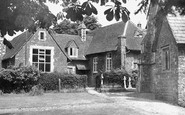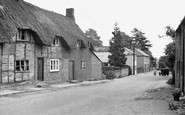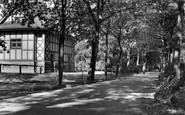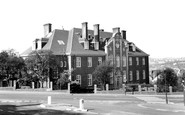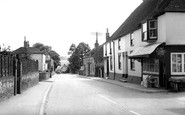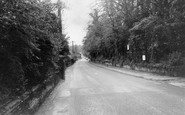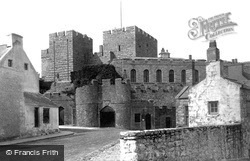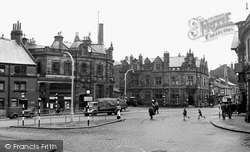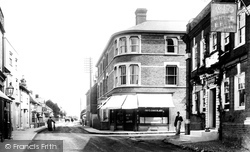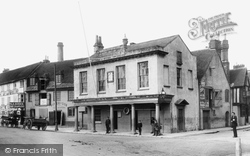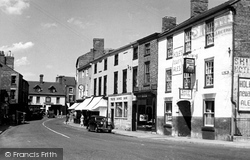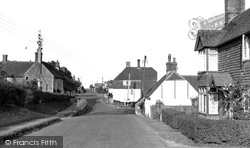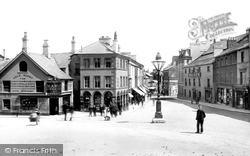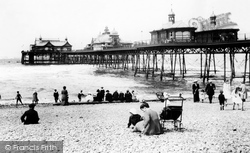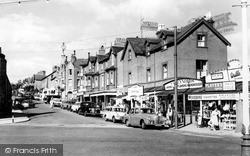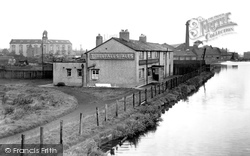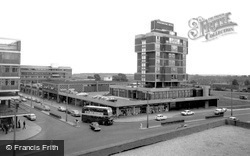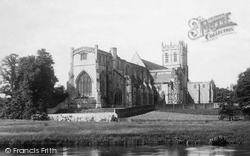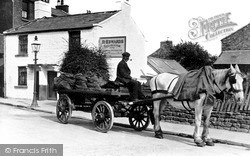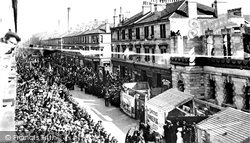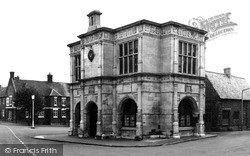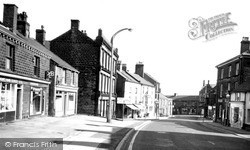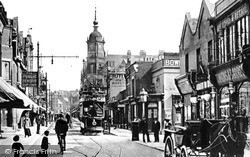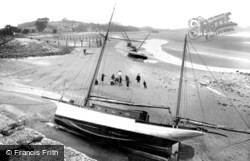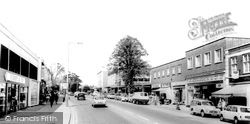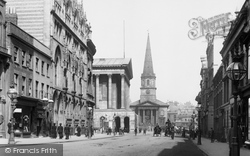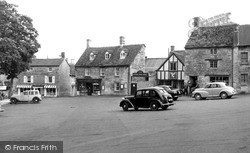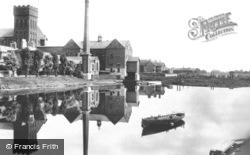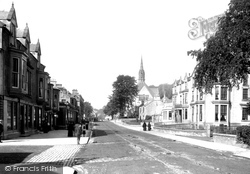Places
26 places found.
Those places high-lighted have photos. All locations may have maps, books and memories.
- Town End, Derbyshire
- Town End, Buckinghamshire
- Town's End, Somerset
- Towns End, Dorset
- Town End, Merseyside
- Town End, Cambridgeshire
- Town's End, Buckinghamshire
- West End Town, Northumberland
- Bolton Town End, Lancashire
- Kearby Town End, Yorkshire
- Town End, Cumbria (near Grange-Over-Sands)
- Town End, Cumbria (near Bowness-On-Windermere)
- Town End, Yorkshire (near Huddersfield)
- Town End, Yorkshire (near Wilberfoss)
- Town End, Cumbria (near Appleby-in-Westmorland)
- Town's End, Dorset (near Melbury Osmond)
- Town's End, Dorset (near Swanage)
- Town End, Cumbria (near Ambleside)
- Town End, Cumbria (near Lakeside)
- Town End, Cumbria (near Kirkby Lonsdale)
- Town End, Cumbria (near Ambleside)
- Town's End, Dorset (near Bere Regis)
- West-end Town, South Glamorgan
- Townend, Derbyshire
- Townend, Strathclyde (near Dumbarton)
- Townend, Staffordshire (near Stone)
Photos
26 photos found. Showing results 2,601 to 26.
Maps
195 maps found.
Books
160 books found. Showing results 3,121 to 3,144.
Memories
3,719 memories found. Showing results 1,301 to 1,310.
Milford Youth In Early Sixties
I was fortunate to live in Milford for two years when I was 7 and 8. They are my clearest memories of the past. Went to this school, wooden floorboards that were quite an accompaniment to country dancing class. Nature ...Read more
A memory of Milford in 1960 by
The Little Woods & The Big Woods & Playing Football
Me and all my mates had many hours and plenty of fun playing in the woods. Best friends; Jimmy Peers, Terry Orr, Alex Maxwell, Mike Smith and many more. Could not wait to get home from school to have a ...Read more
A memory of Speke in 1959 by
Childhood
I was born in a cottage opposite the Wheatsheaf pub when our village was greatly different from what it has become. I grew up in the proverbial English village. Happy days. I remember Baroness Kinloss, relative to the Duke of ...Read more
A memory of Maids' Moreton in 1950 by
Wakefield Clarence Park
I 'lived' in Clarence Park for years when I was a kid. It became my magic Kingdom! I knew every bush and tree and secret trail through the bushes. I would lurk in the bushes and spy on people walking past. I had a favourite ...Read more
A memory of Wakefield in 1950 by
High Street.
The Ironmonger, Mr Wilkinson, just down the street. My dad visited there almost every Saturday. It was his favourite place, and he would always come home with something! Anyone have pictures of the High Street in the fifties? Another store I remember well was Banks.
A memory of Three Bridges by
Memories Of St Anne's 1957 1962
I attended St Anne's from age six to eleven; we had moved to Croydon so this was my second primary school. My memories are not good, on the first day I was told I had a 'heathen name' and it was all down hill from ...Read more
A memory of Sanderstead in 1957
Stowmarket As A Kid In The 70's!
I grew up in Stowmarket (Combs Ford end!). I remember Milton Road, etc, before the Relief Road cut the town in half! Saturdays used to see the town centre heaving with people - cars came through the main street ...Read more
A memory of Stowmarket by
The Top Woods And The Tunnel Beneath The Wittingto Estate
My Dad was a sergeant in the RAF; along with Mum (Jean), brother Robert, and sister Carol we lived in married quarters in Medmenham. I remember Roddy Banks and Chris Waillin and the big ...Read more
A memory of Medmenham in 1959 by
Doctor's To The Left, Butcher To The Right.
The (Roman) road going down to Buttsole and then to Dover or Deal and Updown Cricket field to the left, was sometimes blocked by farmworkers guiding their sheep from one pasture to another through the village ...Read more
A memory of Eastry by
Going Down And 3 Miles To Sandwich
Again, we notice Eastry is set atop a hill and the Roman Road continues its way down and along to Sandwich. On the way are Dutch sounding place names such as Felderland Lane. The land is very flat and it wouldn't ...Read more
A memory of Eastry by
Captions
5,111 captions found. Showing results 3,121 to 3,144.
They sacked a number of towns, including Durham and Hartlepool, while Robert reduced England's Scottish possessions to a handful of fortresses.
The Circus, in the town centre, is where five roads meet. It has the usual mixture of banks and public houses on its corners.
This junction of two streets marks the site of the former market place, with the stolid red-brick White Lion, on the extreme right, and the King of Prussia pub along the road on the left, ready to slake
The Harbour Office dates from 1727; the first floor was extended over the pavement in 1822 to allow for a fire and chimney in the Ballast Master's office above.
An important medieval town, it declined until the early 19th century when the Horncastle Navigation Canal opened, giving access to Lincoln and Boston.
It is one of the late 18th-century settlements which developed on commons and wastes lying on the flat-topped ridgeways, after leases were granted to anyone who wanted to settle there.
A market town since the 13th century, Ulverston became a busy port during the 18th and 19th centuries, exporting slate via the country's shortest canal.
From the beach, the pier's extravagant pavilions suggest something mysterious and exotic, a world away from the industry of the nearby towns.
Rhos-on-Sea was the poorer cousin to nearby Colwyn Bay, yet it still manages an identity of its own.
The town owes its very existence to the building of the Ellesmere Canal (as it was then called) by Thomas Telford and William Jessop in the 1790s.
Dominating the scene is the three-star, forty-one bedroomed Strathclyde Hotel, a substantial building standing on a podium, which provided welcome accommodation for business visitors to the town
Legend relates that the original site for the priory church was on the nearby St Catherine's Hill, a splendid view- point overlooking the town.
This late Victorian scene is typical of many of the towns and villages in England at the time.
The streets are packed with onlookers, and anxious officials wait by the entrance to the site of the new town hall.
Originally with its ground floor open behind the arches, it was left unfinished, amazingly, for over three centuries, and finally completed in 1895.
It was not always quiet on the streets of Penistone; until 1910 cattle and sheep were sold in the streets on Thursdays, and many a deal was struck over a pint or two at the Spread Eagle Hotel.
One early change was the construction of the large building halfway along on the right which is one of the town's two fish- and-chip shops.
In 1905 Swindon was a busy manufacturing town which owed its wealth and commercial rise almost exclusively to the railway age in general and the inspiration of Sir Daniel Gooch in particular, who
The Ulverston Canal was opened in 1796 to connect the town with the Leven Estuary, and to enable trade, both exports and imports, to be increased.
Between 1903 and 1935 Waterlooville and Portsmouth were linked by tram. London Road is not the main road to London any more. Here a few Victorian houses survive, mostly rendered, some with verandahs.
Designed by Charles Barry, the Birmingham and Midland Institute opened in 1856, the foundation stone having been laid by Prince Albert in November 1855.
Northleach was once one of the most prosperous wool towns of the Cotswolds in the 15th century, and an important cross-roads of the Fosse Way and the London-Cheltenham roads.
Since the 18th century, the town has been a centre for the brewing of beer. The breweries used the Wharfe to bring in raw materials and transport finished products.
However, in Victorian times the town became a popular spa, complete with pump room and baths and around 100 lodging houses.
Places (26)
Photos (26)
Memories (3719)
Books (160)
Maps (195)



